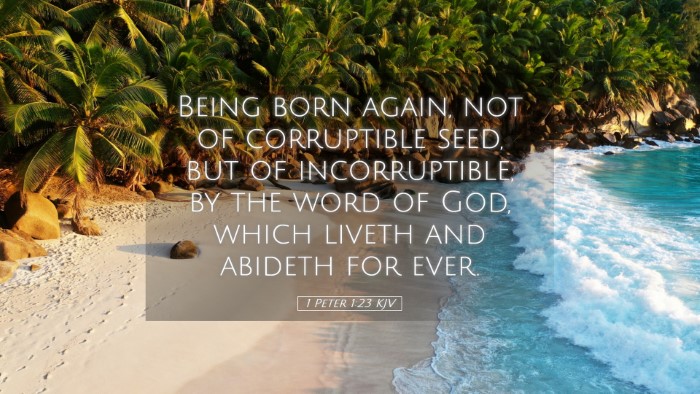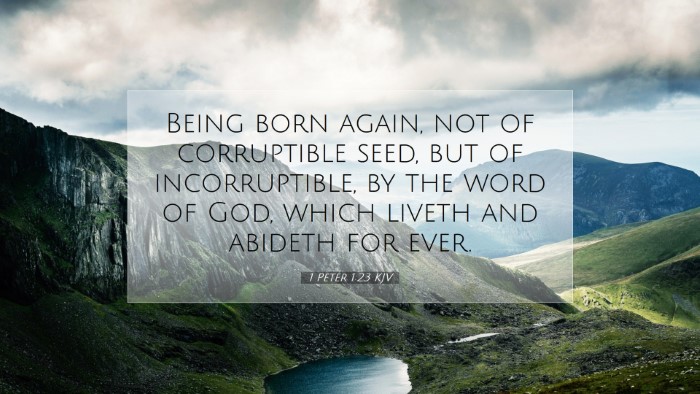Old Testament
Genesis Exodus Leviticus Numbers Deuteronomy Joshua Judges Ruth 1 Samuel 2 Samuel 1 Kings 2 Kings 1 Chronicles 2 Chronicles Ezra Nehemiah Esther Job Psalms Proverbs Ecclesiastes Song of Solomon Isaiah Jeremiah Lamentations Ezekiel Daniel Hosea Joel Amos Obadiah Jonah Micah Nahum Habakkuk Zephaniah Haggai Zechariah MalachiVerse
1 Peter 1:1 1 Peter 1:2 1 Peter 1:3 1 Peter 1:4 1 Peter 1:5 1 Peter 1:6 1 Peter 1:7 1 Peter 1:8 1 Peter 1:9 1 Peter 1:10 1 Peter 1:11 1 Peter 1:12 1 Peter 1:13 1 Peter 1:14 1 Peter 1:15 1 Peter 1:16 1 Peter 1:17 1 Peter 1:18 1 Peter 1:19 1 Peter 1:20 1 Peter 1:21 1 Peter 1:22 1 Peter 1:23 1 Peter 1:24 1 Peter 1:25

